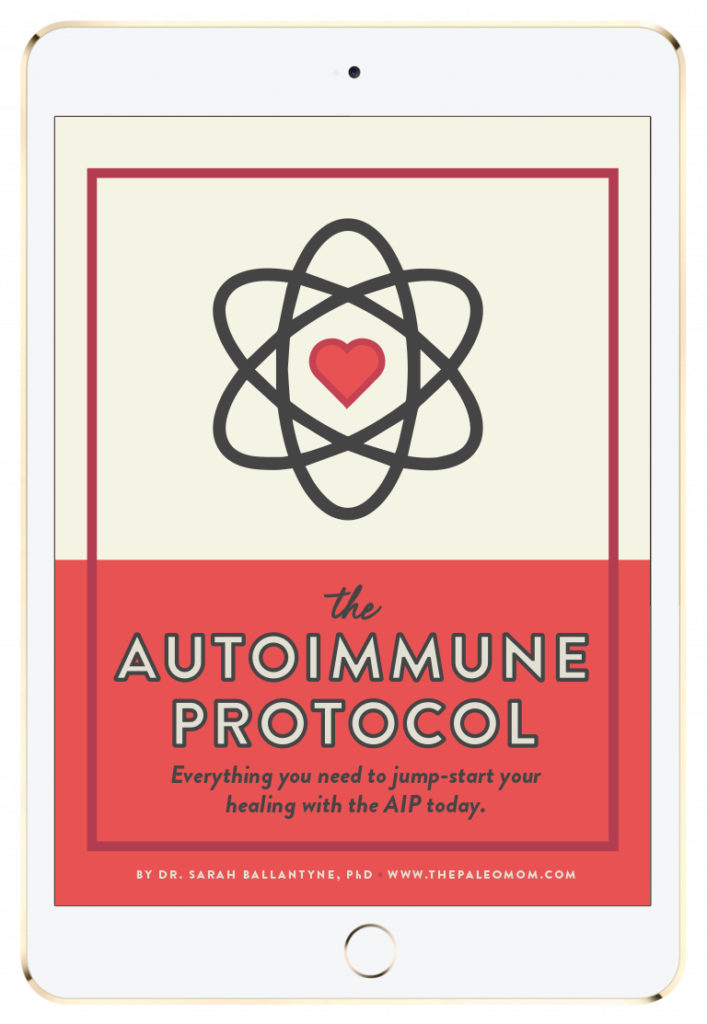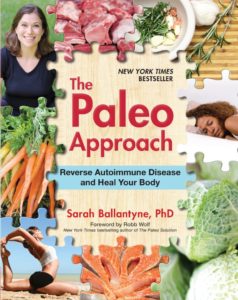 There are many topics that I researched extensively for The Paleo Approach that I’ve been meaning to write about for the blog for ages. I have decided take some of these topics (especially the more blog-sized ones) and publish them as teaser excerpts for the book (also because I think this information should be here too).
There are many topics that I researched extensively for The Paleo Approach that I’ve been meaning to write about for the blog for ages. I have decided take some of these topics (especially the more blog-sized ones) and publish them as teaser excerpts for the book (also because I think this information should be here too).
This excerpt is from Chapter 5, the chapter that details exactly what to eat including comprehensive food lists. Chapter 5 also talks about a variety of food quality and safety topics as well as practical implementation topics like variety, where to source the best quality food, and both tips and priorities for tight budgets.
I’ve decided to break the section on macronutrient ratios into two teaser excerpts. The first excerpt discussed the optimal proportion of our diets that come from protein, fat and carbohydrates in more general terms and can be found HERE. This post specifically discusses ketogenic diets. I’ve also included a relevant testimonial.
Excited to read The Paleo Approach? It is available now!
Want to help spread the word about my book? Please share this post and other teaser excerpts. Thank you!
There is a great deal of passion both for and against ketogenic diets. These very low-carbohydrate, moderate-protein, and high-fat diets were developed in the 1920s as a treatment for epilepsy that was not responding to other treatments. Ketogenic diets alter metabolism by increasing the level of ketone bodies in the blood while decreasing glucose, mimicking the biological changes caused by starvation. A proven therapy for epilepsy, short- to medium-term nutritional ketosis (from a few weeks to a few months) can be beneficial for a variety of neurological disorders, and those with autoimmune diseases that affect neural tissues may want to experiment with a ketogenic diet (in addition to my other recommendations). Ketogenic diets were beneficial in animal models of multiple sclerosis (no human studies have been done) and have decreased epileptic seizures even in children with both epilepsy and type 1 diabetes. However, evidence supporting the use of ketogenic diets in humans with neurological autoimmune diseases (or any autoimmune diseases, for that matter) is lacking.
In patients with rheumatoid arthritis, a short-term (seven-day) ketogenic diet did not reduce inflammation or any clinical or laboratory measures of disease activity, but a short-term fast did (see page ##). And while the ketogenic diet did result in lower blood-leptin levels, it did not decrease the numbers of total or activated T cells. Of significant concern, the ketogenic diet caused an increase in cortisol (see page ##). Also, nutritional ketosis (or even simply very high fat consumption in a single meal!) has been shown to decrease insulin sensitivity (see page ##). Following a ketogenic diet over the long term may cause nonalcoholic fatty liver disease (at least it does in mice). Furthermore, when vegetables are so strictly limited, you are missing out on some very valuable vitamins, minerals, antioxidants, and fiber.
Studies evaluating the effects of ketogenic diets are limited, and even more limited in the context of autoimmune disease. There just isn’t sufficient data suggesting that ketogenic diets, especially long-term ones, are beneficial or even safe for those with autoimmune disease. If anything, the arthritis studies indicate that nutritional ketosis may do more harm than good by raising cortisol levels.
Testimonial by Nataliya
“I have suffered from alopecia areata since the age of 15–so for 17 years now, with 4 major flare ups and also periods of 100% hair in between. The first two flares were triggered by extreme stress and a high sugar diet during those weeks to emotionally cope with stress.
The most recent outburst happened very unexpectedly when I saw many female friends successfully losing weight with ketogenic diets. I have always had problems eating too much protein–I am immediately constipated and have a heavy stomach. Still, in the search for beauty, I tried after a strict nutritional ketosis protocol (20 grams of carbs and 5 small protein intense meals daily). After only 5 days, I had the second worst flare of my life. I had to help my digestion with enemas for those 5 days and only after going back to more vegetables, fruit etc. digestion regularized. My hair was falling out for over 4 weeks after this diet. It took me 6 painful months of clean eating, doing acupuncture & numerous hair masks & UV treatments to fill in the patches.“
Interested in learning even more about The Paleo Approach? This video from my YouTube Channel is just a quick tour (the book is so big that giving you a broad overview takes 13 minutes!) but you get to see just how comprehensive and detailed this book is.
Excited about my book? You can support me by ordering here. Also check out the announcement of the companion cookbook to The Paleo Approach (aptly titled The Paleo Approach Cookbook) HERE!
Citations
Afaghi, A., et al., Effect of low-glycemic load diet on changes in cardiovascular risk factors in poorly controlled diabetic patients, Indian J Endocrinol Metab. 2012 Nov;16(6):991-5
Badman, M.K., et al., A very low carbohydrate ketogenic diet improves glucose tolerance in ob/ob mice independently of weight loss, Am J Physiol Endocrinol Metab. 2009 November; 297(5): E1197–E1204
Brenta, G., Why Can Insulin Resistance Be a Natural Consequence of Thyroid Dysfunction?, J Thyroid Res. 2011; 2011: 152850
Chearskul, S., et al., Effect of weight loss and ketosis on postprandial cholecystokinin and free fatty acid concentrations, Am J Clin Nutr. 2008 May;87(5):1238-46
Dressler, A., et al., Type 1 diabetes and epilepsy: efficacy and safety of the ketogenic diet, Epilepsia. 2010 Jun;51(6):1086-9
Fraser, D.A., et al., Reduction in serum leptin and IGF-1 but preserved T-lymphocyte numbers and activation after a ketogenic diet in rheumatoid arthritis patients, Clin Exp Rheumatol. 2000 Mar-Apr;18(2):209-14
Fraser, D.A., et al., Serum levels of interleukin-6 and dehydroepiandrosterone sulphate in response to either fasting or a ketogenic diet in rheumatoid arthritis patients, Clin Exp Rheumatol. 2000 May-Jun;18(3):357-62
Ho, K.J., et al., Alaskan Arctic Eskimo: responses to a customary high fat diet, Am J Clin Nutr. 1972 Aug;25(8):737-45
Jennings, A.S., Regulation of hepatic triiodothyronine production in the streptozotocin-induced diabetic rat, Am J Physiol. 1984 Oct;247(4 Pt 1):E526-33
Kim do, Y., et al., Inflammation-mediated memory dysfunction and effects of a ketogenic diet in a murine model of multiple sclerosis, PLoS One. 2012;7(5):e35476
Lindeberg, S., et al., Determinants of serum triglycerides and high-density lipoprotein cholesterol in traditional Trobriand Islanders: the Kitava Study, Scand J Clin Lab Invest. 2003;63(3):175-80
McMillan-Price, J., et al., Comparison of 4 diets of varying glycemic load on weight loss and cardiovascular risk reduction in overweight and obese young adults: a randomized controlled trial, Arch Intern Med. 2006 Jul 24;166(14):1466-75
Reimer, R.A., et al., Satiety hormone and metabolomic response to an intermittent high energy diet differs in rats consuming long-term diets high in protein or prebiotic fiber, J Proteome Res. 2012 Aug 3;11(8):4065-74
Weigle, D.S., et al., A high-protein diet induces sustained reductions in appetite, ad libitum caloric intake, and body weight despite compensatory changes in diurnal plasma leptin and ghrelin concentrations, Am J Clin Nutr. 2005 Jul;82(1):41-8
Hey, look which book is an Editor’s Pick on Amazon for October!!!!






 Olive Oil Ice Cream
Olive Oil Ice Cream